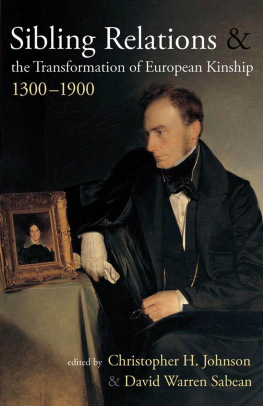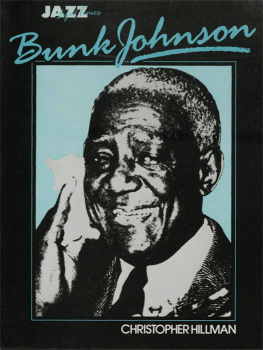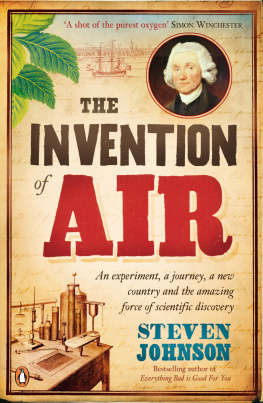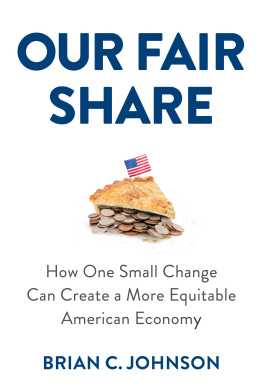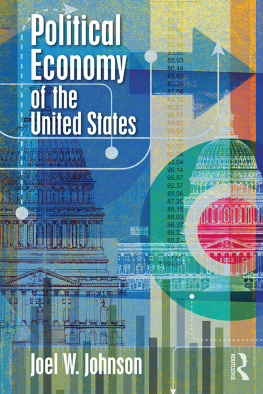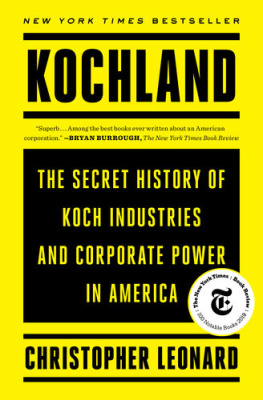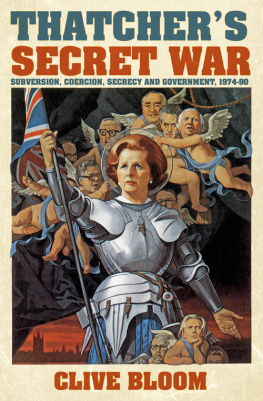First published 1991 by Westview Press
Published 2019 by Routledge
52 Vanderbilt Avenue, New York, NY 10017
2 Park Square, Milton Park, Abingdon, Oxon OX14 4RN
Routledge is an imprint of the Taylor & Francis Group, an informa business
Copyright 1991 by Christopher Johnson
All rights reserved. No part of this book may be reprinted or reproduced or utilised in any form or by any electronic, mechanical, or other means, now known or hereafter invented, including photocopying and recording, or in any information storage or retrieval system, without permission in writing from the publishers.
Notice:
Product or corporate names may be trademarks or registered trademarks, and are used only for identification and explanation without intent to infringe
Library of Congress Cataloging-in-Publication Data
The grand experiment: Mrs. Thatchers economy and how
it spread / by Christopher Johnson
p. cm.
Originally published: London, England ; New York :
Penguin Books, 1991.
Includes bibliographical references and index.
1. Great BritainEconomic Policy1945 I. Title
HC256.6.J63 1993
338.941009048dc20
93-9937
CIP
ISBN 13: 978-0-367-29263-8 (hbk)
This is not an economic history or an economic analysis, although it draws upon both disciplines. It is an attempt at political economy. It surveys the economic policies of the Thatcher Conservatives, from their intellectual origins in Opposition to their formulation in government papers and their implementation through three terms of office. It seeks to judge the appropriateness of the policies, the competence of their execution and the degree of their success in achieving the desired effects. Possible alternative policies are not discussed in detail, and we can now never know how they would have turned out. Appraisal of the Thatcher Governments policies, however, inevitably implies something about what the alternatives might have been, particularly those alternatives that members of the Government themselves seriously contemplated.
Although Mrs Thatcher herself was at all times the dominant figure in formulating and carrying out her Governments policies, she was the leader of a team with similar ideas, whose members held key posts. It is the actions and words of departmental ministers acting in her name, as much as her own words and actions, that therefore form the subject-matter of the book. Indeed, the source material for what the Prime Minister and her policy unit and key advisers were saying and thinking is scanty compared with the official papers and speeches of the main departments and their ministers. Some of Mrs Thatchers remarks were in any case more by way of personal opposition to the line that she had resigned herself to allowing her Government to take.
It has not been possible to discuss the blow-by-blow details of policy implementation with the main participants, but some have already published valuable memoirs. A political history of this kind would have required a whole book to do justice to each chapter.
Rather than trying to cover the entire range of economic policies year by year, I have found it more illuminating to separate each main policy area and survey it over the decade, interrelating them by means of cross-references and in the conclusion. Inevitably, over half the book is devoted to policies for which the Treasury was responsible. analyses the defects and qualities of Mrs Thatchers style of government as it affected economic policy-making. It summarizes the findings of each chapter and tries to bring them together into a coherent verdict.
I make no apologies for drawing extensively on the reports of the Treasury and Civil Service Committee of the House of Commons, whose first decade of existence coincides with Mrs Thatchers period in government. It was fortunate for the cause of open government that Mrs Thatcher allowed the select committees to be set up at the instigation of Norman St John-Stevas (now Lord St John of Fawsley), even though she may subsequently have regretted her decision. I apologize to the Select Committees on employment and on trade and industry, whose reports I have used much less, being relatively unfamiliar with their proceedings.
My work as a specialist adviser to the Treasury Committee, covering every Budget and Autumn Statement since late 1983, has given me a precious insight into the policy-making process. I here acknowledge the encouragement I have had from the two chairmen of the Committee, Sir Edward Du Cann (197983) and Terence Higgins (1983-), and the other members. The Committees judgements, which seek to be tripartisan as far as possible, comment like a Greek chorus on the tragicomedy of the Governments economic policies. It may be assumed that when I quote the Committees views I am in agreement with them; it would be tedious, if not improper, for me to specify which of them were the direct result of my advice.
I began writing this book in October 1990. Mrs Thatchers resignation the following month made it all the more appropriate to attempt a summing-up of her three administrations, even if not all the statistics for 1990 are available as the book goes to print. Previous interim reports on Mrs Thatcher have inevitably had to contend with unexpected turns for the better - or the worse - after publication. Mrs Thatcher, OM, has quickly become part of history, even if it will require the history of the 1990s to be revealed before appraisals more definitive than the present work can be made. In view of the changes in ministers, and the substance as well as the style of policy, this book should be taken as a judgement not of John Major and his Government but of the legacy that they inherit.
I wish to acknowledge the opportunity that Lloyds Bank has given me to develop my ideas about economic policy in the Lloyds Bank Economic Bulletin , which began life in January 1979 and has thus covered the full span of three Thatcher terms. As well as inviting me to play the game of guessing in advance the contents of each Budget - a useful exercise in Treasury mind-reading - Lloyds Bank gave free rein to my comments on government economic policy. The bank - whatever that is - does not necessarily agree with the views expressed in this book, whose publication follows hard on the heels of my retirement from the post of the banks Chief Economic Adviser.
In particular, I thank Patrick Foley, the Deputy Chief Economic Adviser, Teresa Fletcher, the Librarian, and her staff, Marcia Howard, my secretary, and David Thornhill, the chart artist, for their help with the book. I would also like to thank my publishers at Penguin: Andrew Franklin, who brought out Measuring the Economy in 1988 and encouraged me to write another book, and Ravi Mirchandani, who has given a welcoming reception to the idea of The Economy Under Mrs Thatcher 19791990. My wife, Anne, has supported me wonderfully, putting up with a husband who works all day at the office and all evening and all weekend at home.
A few notes on style for the reader are needed. I have deliberately not used footnotes because they disturb the narrative. Sources are either given in the text or should be easily identifiable from the references for each chapter at the end. The references should be taken not as a full survey of the voluminous literature on each topic but as lists of those sources referred to in the text or of particular significance in my own background reading. When a pair of years is given covering changes, it must be understood that the base year is the year before the first year of the pair. Thus the growth rate for 198089 is measured from base year 1979 to final year 1989, and 1980 is the first of the series of years in which the growth took place. Fractions are used to denote a number to the nearest one-quarter as opposed to decimals to one place, which denote it to the nearest 0.1.



